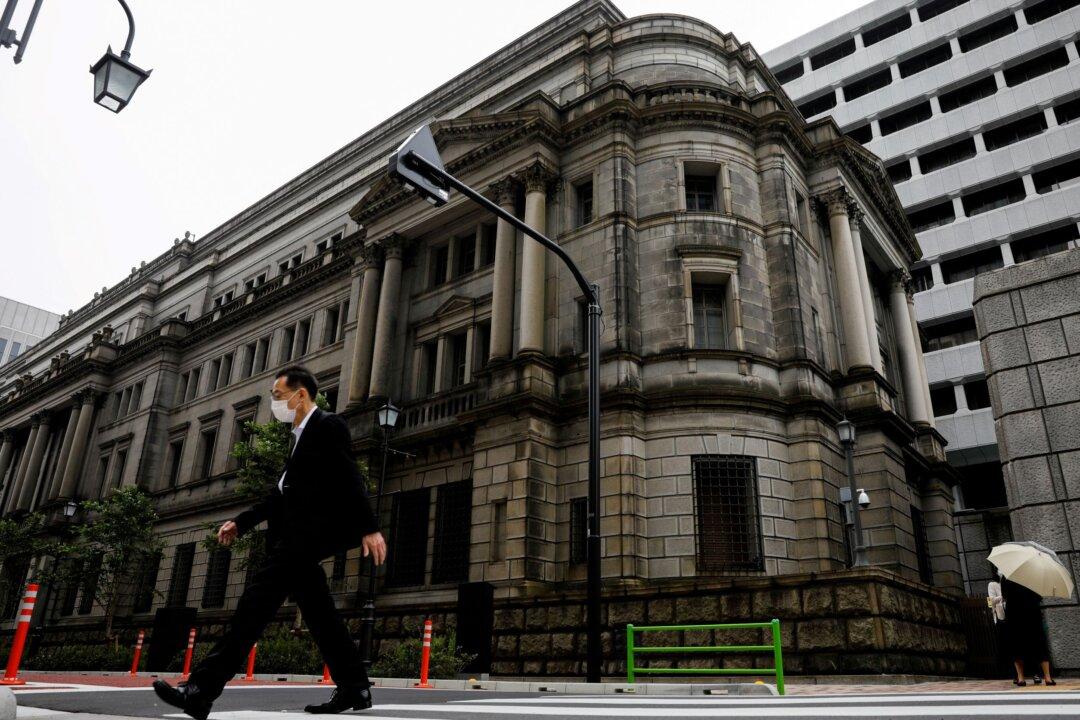TOKYO—Bank of Japan (BOJ) policymakers in September saw rising risks to the economy from slowing Chinese growth, semiconductor shortages and Southeast Asian factory shutdowns, a summary of opinion expressed at their monthly rate review showed on Friday.
Such heightening external risks could affect the BOJ’s fresh quarterly growth projections, due at its next policy-setting meeting on Oct. 27–28.





